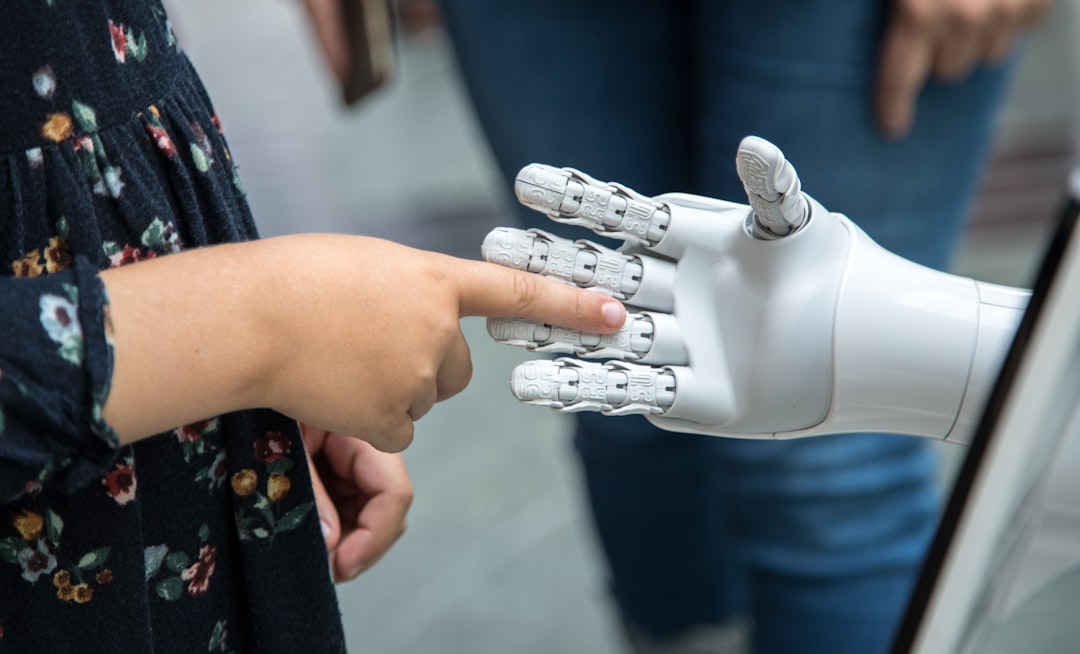In the evolving landscape of work, remote positions have become increasingly desirable for their flexibility and convenience. However, a concerning trend is emerging: the very characteristics that make jobs suitable for remote work also make them prime candidates for AI replacement. As we navigate the post-pandemic era where digital transformation has accelerated, remote workers face a sobering reality check about their job security in an AI-driven future.
The Vulnerability of Remote Work to AI Replacement
Remote work surged during the pandemic, creating a seismic shift in how we view employment. Yet this shift coincides with unprecedented advancements in artificial intelligence capabilities, creating what experts call a "be careful what you wish for" moment. According to research from Oxford University academics, tasks that can be performed remotely are also the easiest to automate, making home workers particularly vulnerable to AI replacement.
Professors Carl-Benedikt Frey and Michael Osborne from Oxford University, who accurately predicted major job automation risks back in 2013, now caution that "if a task can be done remotely, it can also be potentially automated". This creates an unexpected vulnerability for professionals who fought hard for remote work flexibility.
What makes this particularly concerning is that AI systems are rapidly evolving beyond simple task automation. Modern AI agents can operate autonomously, performing complex functions without direct human oversight. The emergence of "agentic AI" in 2025 has enabled these systems to write reports, manage emails, analyze data, and handle customer service interactions-tasks historically performed by remote workers.
Why Companies Are Eyeing AI for Remote Role Replacement
For employers, replacing human remote workers with AI offers compelling advantages beyond mere cost savings. AI systems provide unprecedented scalability, consistency, and around-the-clock availability. They don't require benefits, breaks, or bandwidth concerns. Most importantly, they eliminate the variability that comes with human performance.
The development of new AI capabilities like the "operator" function (available in premium ChatGPT versions) allows AI to open standalone web browsers and perform operations as if it were a human at a keyboard. This effectively bypasses the need to retrofit existing systems for AI compatibility, making integration remarkably straightforward. Such advances are accelerating adoption across industries like customer service, content creation, and data analysis.
By May 2023, approximately 4,000 US jobs had already been replaced by AI according to available data. This trend is expected to continue, with predictions suggesting machine replacement of jobs could increase unemployment by 10% within the next fifteen years.
Industries and Roles Most at Risk
Remote positions involving repetitive tasks and standardized outputs face the highest replacement risk. These include:
Data Processing and Analysis
AI excels at processing large volumes of information quickly and accurately. Roles involving data entry, basic analysis, and report generation are particularly vulnerable as AI can perform these functions with minimal error and maximum efficiency.
Customer Service and Support
Virtual customer service representatives, once seen as the future of remote work, are increasingly being replaced by sophisticated chatbots and AI-driven support systems. These AI agents can handle multiple inquiries simultaneously with consistent responses and 24/7 availability.
Content Creation and Management
Basic content creation, copy editing, and content management tasks are increasingly being handled by AI systems capable of generating coherent, targeted content at scale. While creative direction still benefits from human input, production-level tasks are becoming automated.
Administrative Work
Scheduling, email management, and other administrative functions that form the backbone of many remote positions can now be effectively managed by AI systems that integrate with existing digital infrastructure.
The Double-Edged Sword of Workplace AI
For remote workers, AI presents a paradoxical challenge. The same tools that enhance productivity may eventually make certain roles redundant. AI-powered tools like virtual assistants, chatbots, and data analysis algorithms are currently marketed as productivity enhancers, helping remote workers manage their tasks more efficiently3. Yet these efficiency gains can lead companies to question whether they need as many human workers at all.
As Neel Parekh, founder and CEO of MaidThis, pointedly observes: "People wanted remote jobs and then got replaced by global talent that works twice as hard at half the cost. And now AI is also coming for those jobs". This dual threat of outsourcing and automation creates a particularly challenging environment for remote workers in developed economies.
Building Remote Work Resilience in the AI Age
To stay relevant in this evolving landscape, remote workers must develop skills that complement rather than compete with AI capabilities. According to emerging workplace trends for 2025, several core competencies will be essential:
1. Digital Literacy as a Competitive Advantage
Mastering a wide range of digital tools, from collaboration platforms to project management software, positions you as an adaptable tech user rather than someone performing tasks that software can automate. The goal is to become the person who leverages AI tools rather than the person replaced by them.
2. Advanced Communication Skills
While AI can generate content and respond to inquiries, it still struggles with nuanced, context-specific communication. Developing exceptional communication skills-particularly the ability to convey complex ideas clearly across digital channels-creates value that AI cannot easily replicate.
3. Creative Problem-Solving and Innovation
AI excels at finding solutions within defined parameters but struggles with open-ended problem-solving that requires creative thinking and novel approaches. Remote workers who can identify innovative solutions to complex challenges will remain valuable.
4. Emotional Intelligence and Relationship Building
The human connection remains difficult for AI to replicate authentically. Remote workers who excel at building relationships, demonstrating empathy, and navigating interpersonal dynamics offer value that current AI systems cannot.
The Evolving Remote Work Landscape of 2025
The nature of remote work is undergoing a profound transformation. According to Global Human Capital Trends research, approximately 375 million workers worldwide will need to acquire new abilities as AI and automation render current skills obsolete. Almost 60% of employees will need significant upskilling to maintain their value in the future job market.
This doesn't mean remote work is disappearing-rather, it's evolving. Companies are increasingly distinguishing between tasks that can be automated and those that require human creativity, judgment, and interpersonal skills. The future of remote work likely lies in roles that combine technical expertise with uniquely human capabilities.
Where In-Person Work Maintains Its Edge
Interestingly, the Oxford researchers note that office-based work may be more resistant to AI replacement because artificial intelligence cannot yet replicate the value of in-person conversations, spontaneous collaboration, and face-to-face meetings. This suggests that hybrid models offering a mix of remote and in-person work may provide the best job security moving forward.
"In-person interactions remain valuable, and such real-life interactions cannot be readily substituted," Professor Frey emphasizes. This creates a somewhat ironic situation where the pandemic-driven push for fully remote work may have accelerated vulnerability to AI replacement.
Conclusion: Adapting to the New Reality
The message is clear: if your work can be done entirely remotely without any degradation in quality or output, it likely contains elements that make it susceptible to AI replacement. This doesn't mean immediate obsolescence, but it does signal the need for strategic career planning and skill development.
Remote workers should focus on developing capabilities that AI struggles to replicate while embracing AI tools as enhancers rather than threats. Organizations and educational institutions are increasingly recognizing this need, with 73% of business and HR leaders affirming that companies bear responsibility for employee development in the face of these technological shifts.
The remote work revolution opened new possibilities for work-life balance and geographic flexibility. To preserve these benefits, remote workers must evolve alongside technology-identifying ways to add uniquely human value in an increasingly automated digital landscape. The future belongs not to those who resist technological change, but to those who strategically position themselves as irreplaceable partners to AI systems rather than their competition.










0 Comments